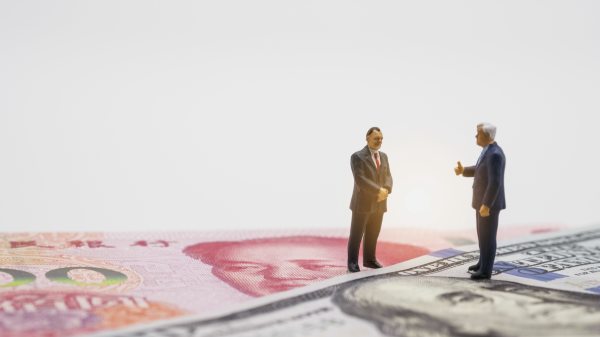The United States wants to cancel the special treatment that China has received as a “developing country”. (Image source: Adobe Stock)
[See China, September 24, 2022](See a comprehensive report by Chinese reporter Li Zhengxin) The U.S. Senate unanimously passed an amendment 96-0, one of which is to cancel the special treatment that China receives as a “developing country” . The previous 32 countries have cancelled the “GSP” tariff policy against China, which has affected China’s economy and trade.
The U.S. Senate on Sept. 21 unanimously passed an amendment 96-0 that requires the U.S. State Department to propose by Nov. 6 that China be defined as an industrialized country under the United Nations Framework Convention on Climate Change, the main international forum for climate diplomacy. The U.S. will also propose to the United Nations and other world organizations to completely abolish the special treatment that China receives as a “developing country”, including: World Bank low-interest/interest-free loans; unequal trade tariffs; market access and technical assistance.
Current affairs commentators pointed out that, from the unanimous vote in the US Senate, it can be seen that the US is non-partisan when it comes to dealing with China.
Chinese state media said the move by the U.S. Senate had ulterior motives.
U.S. Senator Mike Lee said: “China wants to play with different rules than the rest of the world to get ahead. We know China ignores the rules and doesn’t respect international norms, but we continue to allow them to dominate the market while allowing them to They are funded by the American taxpayer.”
Chinese Foreign Minister Wang Yi previously said in Europe that China is still a developing country. “Although the total economic volume has reached the second place in the world, the per capita GDP is only 1/6 of that of the United States and 1/4 of that of the European Union…”.
In international trade, there are indeed real benefits if a country is considered a developing country.
For example, in 2001, when China joined the World Trade Organization (WTO), its per capita GDP was less than 1,000 US dollars, so it could enjoy the treatment of developing countries – the average import tariff was 14%, higher than 7% of developed countries; The transition period is 4 to 8 years, much longer than 2 years in developed countries; it enjoys lower WTO standards for determining dumping than developed countries.
In addition, from December 1, 2021, countries such as EU member states, the United Kingdom, Canada, Turkey, Ukraine and Liechtenstein will no longer grant China the preferential treatment of “GSP” tariffs.
At the time, China’s General Administration of Customs said the GSP was not eternal. After the economic development level of developing countries reaches a certain level, developed countries will inevitably cancel their GSP arrangements, and claim that China has “graduated” from the multi-country GSP. “Graduation” also means to some extent A kind of ‘maturity’.”
Economists believe that the cancellation of GSP tariffs by 32 countries will bring a double blow to China both economically and politically. If China wants to re-enter this market, it will face a very large barrier. After the cancellation of the GSP, tariffs on Chinese products exported to the EU will increase significantly. However, Southeast Asian manufacturing countries such as Vietnam, Indonesia and other countries still enjoy preferential tariffs, which will make business more difficult for Chinese companies and have a devastating blow to China’s trade.
Since the implementation of the GSP in 1978, 40 countries have successively granted China GSP tariff preferences, most of which are China’s important trading partners, such as EU member states and the United Kingdom, Russia, Canada, and Japan. China is also actively using the GSP to expand its export trade to developed countries.
Source: Watch China
Short URL for this article:
All rights reserved, any form of reproduction requires the authorization of China. It is strictly forbidden to create mirror websites.
[Honorary Member Wanted]Streams can merge into the sea, and small kindness can achieve great love. We sincerely solicit 10,000 honorary members from Chinese people all over the world: each honorary member only needs to pay a subscription fee every year to become an honorary member of the “Watch China” website. Provide independent and true key information, warn them in times of crisis, and save them from the great plague and other social crises.

